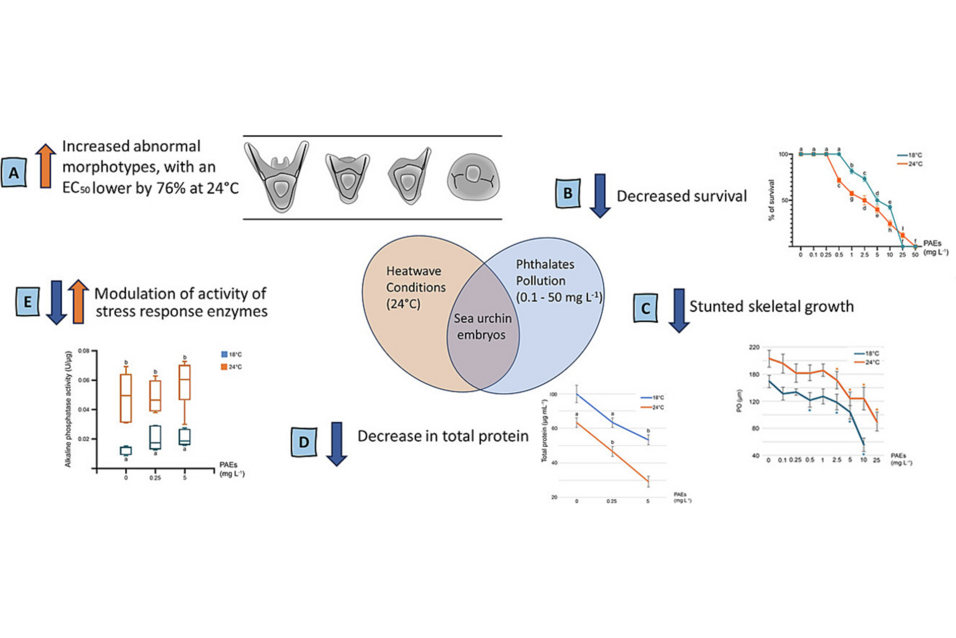The study revealed that higher temperatures (24 °C), previously thought to be optimal for development, actually increase the vulnerability of sea urchin embryos to phthalic acid esters, a common coastal pollutant. Embryo-larval tests showed increased mortality rates, more developmental abnormalities, and disrupted stress response mechanisms when exposed to both heatwaves and pollution.
The findings highlight that relying on single-stressor or single-level biological assays may underestimate environmental risks. The study underscores the need for more integrated approaches to assess how climate change and pollution jointly impact marine ecosystems.
This research marks an important step in international efforts to better understand and protect marine biodiversity in a rapidly changing world.
Links:

